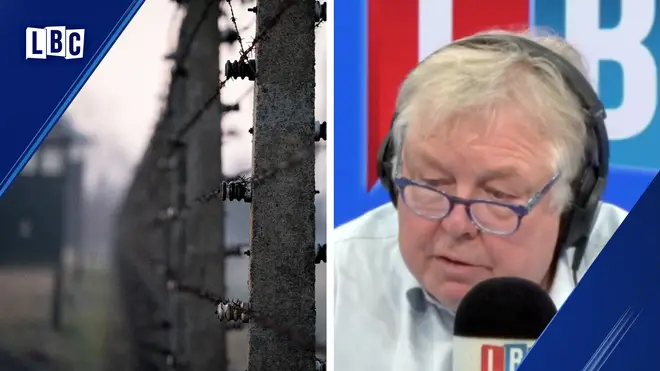
Nick Ferrari 7am - 10am
27 January 2020, 10:51
Dita Kraus survived the Holocaust and told Nick Ferrari an incredibly inspirational tale about how she became known as the 'librarian of Auschwitz'.
Dita Kraus, known as the 'librarian of Auschwitz, told Nick Ferrari that as a 13-year-old she was taken to Theresienstadt.
When she was 14, she was taken to Auschwitz.
Her mother died after the liberation of Belsen and her father starved to death in Auschwitz.
Nick Ferrari asked her how she got the name the 'librarian of Auschwitz'.
She said: "In Auschwitz, we had a kind of three village section of Birkenau you know, the people who had come from Theresienstadt. One of the huts became a so-called day care for children so they wouldn't disturb the adults and their work."
She continued: "The leader was a wonderful man, a sports teacher named Fred Hirsch, and he ran the children's block.
"There were adults who played with the children, secretly taught them also. There were several books found in the luggage."
Kraus said: "People had to leave their luggage on the ramp when they were going to the gas chambers.
"Sometimes the prisoners who sorted the luggage found a book in the luggage and so they smuggled it into the children's block.
"There were about 14 volumes, a random collection. Yeah, but they they help toentertain the children with the children's books."

Nick Ferrari asked if it's important that people remember everything that happened during the Holocaust.
She replied: "It is most important, especially when I listen now to the reports from people who described the anti-Semitic incidents.
"It's so sad. It's so inexplicable. I cannot understand why people are so so hated."
She also said that when on her way to Auschwitz, nobody told them where they were going.
She described her journey: "The most horrific was the journey to Auschwitz. We were pushed into into cattle waggons, standing for a day or two or three, I don't remember how long we were standing.
"We were so crowded we couldn't sit down. The moments we were pushed into the trains, I believe that was the break between human condition and inhumane."

